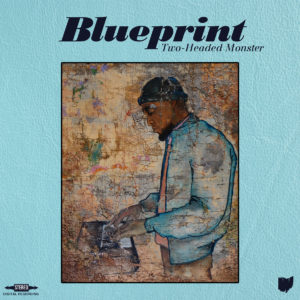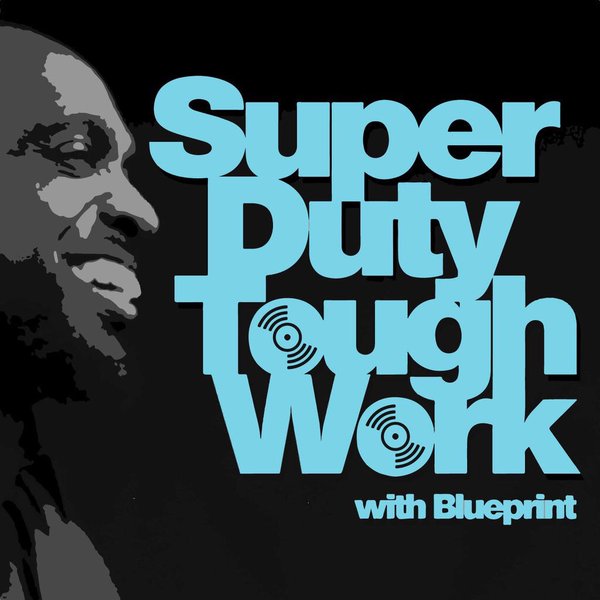
A Breakdown of My Writing Habits and Process
I got a request a little while back about my writing process and wanted to take a quick second to go through it for all those who may be curious. I’m not sure if there is anything that would be considered revolutionary in here, but I do think that some of this may be helpful to those who are interested in becoming more productive with their writing.
PREGAME ROUTINE
First and foremost, I have to admit that I routinely go through long periods where I am not writing regularly, and this applies to music as well. It’s not that I’m sitting around waiting on inspiration to hit me–I actually believe routine beats inspiration any day–it’s more that I tend to write without writing a lot. During the times that I’m not actually sitting down at a keyboard physically writing, my mind is thinking about certain ideas and how best to express them. Not in terms of the actual words that need to be said, but in terms of the angles that I will approach the topic from.
Years ago, I started using the phrase “writers write.” To me, it didn’t just mean that writers are constantly sitting at the keyboard writing down actual words, but that writers are always writing even when they aren’t physically writing. In other words, even when they are not sitting down at the keyboard they are always analyzing, contextualizing, and thinking about writing in their head. I realized this about myself during my routine breaks from writing. An idea would pop into my head, but often times it wasn’t developed enough to sit down and start writing about it. I needed to understand and formulate my angle first. And once I had an angle I could sit down and start getting busy.
SETTING GOALS
I realized early on that one of the most important things about writing is setting goals. Not just goals, but realistic goals. I speak to a lot of people who feel like they struggle to write. The first question I ask them is what is their goal. Nine times out of ten they admit to me that they don’t have any real goal for their writing. Take it from me, it’s damn near impossible to create good writing habits without setting a goal. You have to have something to aspire towards, something to build up to. A goal that is challenging enough to get you excited, but realistic enough to attain it. And the more measurable it is the better.
I started blogging in 2008. My original goal was just to have a platform for my writing where people could learn more about me, but as time passed I saw that I needed a bigger writing goal to stay inspired. Around 2009, my next goal became to blog at least once or twice a week. Then my goal became to blog at least two to three times a week.
As I became a better writer, my voice started to develop and I became more comfortable with what I was posting every week. The habits and routine I had developed over the first year or two of blogging had given me a ton of confidence. I never believed I was the best writer, only that I could tell my story honesty and effectively. I saw that writing isn’t really about being inspired as much as it’s about being disciplined. The writers who wait around on inspiration rarely get things done, while those who are disciplined finish things. Even even if it’s not their best work, the disciplined writer wins because they are being proactive.
In 2010, when I stopped drinking, my mind started getting clearer and I started having much more time and discipline from not being in the bar every night. I kept writing consistently then and saw the biggest jumps in the quality of my writing around that time. The feedback and traffic on my website started to increase tremendously around then as well. I was developing an audience for my blog writing and I started to see that they might support a more ambitious writing project from me.
In 2011, I set my next goal–to write and release my first book. I toured most of that year when I released my album Adventures in Counter-Culture, but decided I was going to start on my first book as soon as I got home from the road. That book ended up being The Making of Adventures in Counter-Culture, released it in 2012. I released my second book Word is Blog: Volume One later in 2012 and my third book What A Night: A Book About the Worst Shows of My Career in 2014.
DEVELOP HABITS
One of the main things I’ve learned about life, in general, is that your habits determine your outcomes. People with productive habits have positive outcomes and people with destructive habits (or no habits at all) have negative outcomes. Writing is no different–the habits you develop with your writing are what determine how far you go as a writer.
Many writers are tricked into believing that talent is the most important attribute, but I beg to differ. There are millions of talented writers, who write amazing things anytime they sit down. The problem is that they don’t have the discipline to sit down enough and finish anything that the public will ever see. Being successful takes great habits. Writing makes you a better writer, but your writing habits make you successful.
As I mentioned earlier, I don’t write all the time. In fact, I routinely take months off physically writing. But once I decide that it’s time to write, I start establishing goals and habits that will help me achieve my goal. I don’t wait on inspiration. I don’t wait until I have the time. I make the time and start practicing productive habits. Since everybody’s lives are different, everybody’s routines and habits will be different. Do what works for you, not what everybody tells you to do.
For me, the first thing I do is figure out when the best time is for me to write. Some people have families, busy households, and work during the day that keeps them busy. Things don’t get quiet until later in the evening or night for them. Those people may find it best to write before they go to bed at night. I write in the mornings. First thing in the morning. I don’t even get out of bed. I sleep with my laptop next to my bed. As soon as I wake up around eight or nine am, I grab it and I start writing.
I write in the mornings because it is when my mind is at its clearest. I’m not thinking about what I have to do that day, nor have I read any news stories that might effect my mood yet. Because my mind is clear, it becomes much easier to spend the first hour or two of my morning writing. Another bonus of writing in the mornings is that it gives me huge boost in confidence that I can use to fuel the rest of my day.
What’s important is establishing a writing habit that works for you. One that you can stick with and execute even when you don’t necessarily feel like it, because there will be those days. Trust me, it will be hard sometimes. There will be plenty of days where you will be unhappy with that you wrote, or maybe you wrote less than you set out to write, but the fact that you established a writing habit will still put you head and shoulders above all the people who are waiting on inspiration before they write.
MAKE IT MEASURABLE
Another important piece to my writing process is establishing measurable daily and weekly goals. To some people, just sitting down to write on a regular basis is enough. Not so much for me. Whether I’m writing a series of blogs or working on a book, I like to set measurable goals that push me further.
The first measurable writing goal I use is word count. I noticed early on in my blog writing that an in-depth post would be around 1000-1500 words on average, so I focus heavily on reaching a word count on any day that i sit down to write. When I was playing basketball in high school, our coaches would give us goals like this during our summers off. For example, my coaches told me I needed to shoot 200 jump-shots per day and 100 free throws per day. I didn’t understand it at first, but once I got into the process I saw how much it helped out the mechanics of my shot. My form got better and my shooting percentages increased every year. Writing is no different. Setting a word count gives you a goal to aspire towards and as you get there you will increase the mechanics of your writing.
So, when I’m writing a book or a full-length blog post, my goal is to hit 1500 words on any day that I write. It’s a measurable goal that keeps me honest about how productive I’m really being when I write. I used this process to write my last book What a Night. I set aside a three week period and committed to waking up every day and writing 1500 words. Each day was dedicated to a chapter in the book. Some days I nailed it. Other days I wasn’t happy with what I wrote and had to go back. But the fact that I had written my first draft of the book in just three week put me so much further than I would have ever been otherwise. I didn’t wait on inspiration, I made myself sit down and do it. And I’m glad that I did.
Another measurable I use is in my writing is days per week. If I’m going to be writing, I set the goal of writing four to five days a week. Some people may be able to do every day, but I’ve noticed that I’m the most productive at four to five days. That gives me time to take days off, to revise the angle I’m approaching it from, and days to not even think about writing at all and still be productive
REVISION
I am a firm believer that attempting to heavily revise your writing while you are writing is one of the most destructive things you can do. You can become so consumed with how you are saying something that you lose sight of what you are saying.
My advice is to get the words on paper first and revise at the end. This allows you to get to a first draft much faster and see if your idea has any legs on it. And remember, the writer usually obsesses over the technicalities of writing much more than their audience does. I learned this lesson in music.
CONCLUSION
As you can see, my process is not very complicated. It mostly revolves around habits and putting myself in a position to get words out with regularity. Here’s a summary of process:
- PreGame Routine – Formulate and develop your writing ideas before you write.
- Set Goals – Have a goal for your writing. Don’t leave it open-ended.
- Make it Measurable – Use measurable goals that show your productivity
- Revise Later – Get the words out now, revise them later.
I could go into much more depth on this but I don’t want this to get too long. I hope this is helpful. Let me know what you think and please feel free to share your writing tips, routines, and habits in the comment section below.
Word is Blog.
BLUEPRINTMy latest album Two-Headed Monster is out now. Order/Listen here HERE



